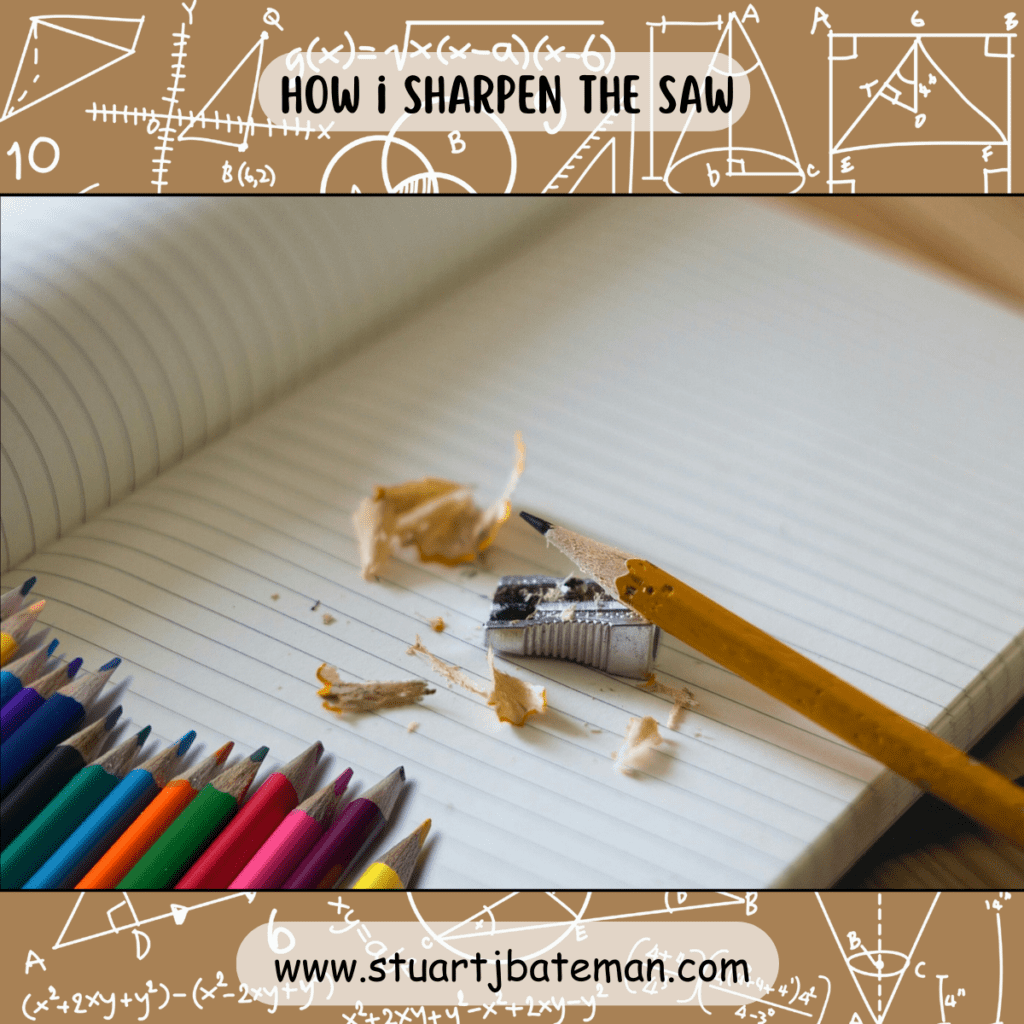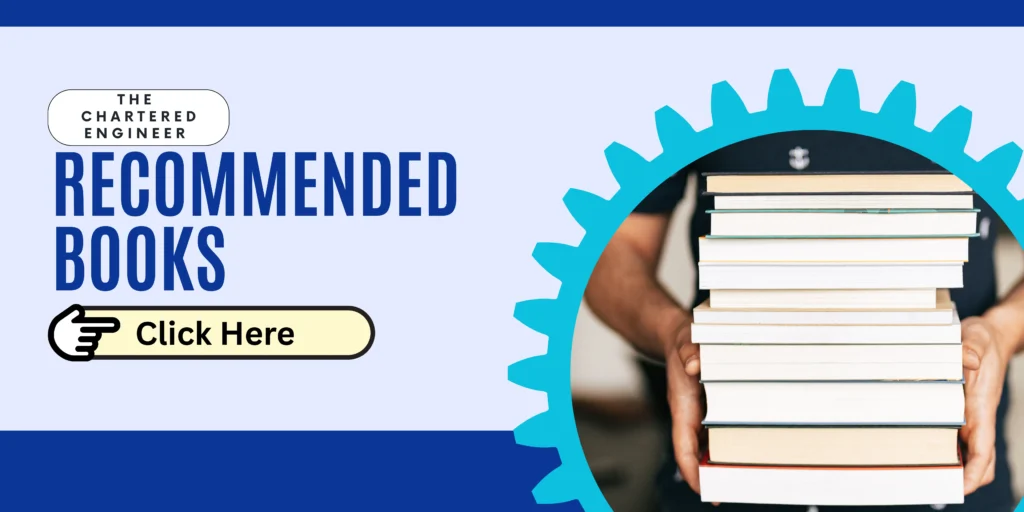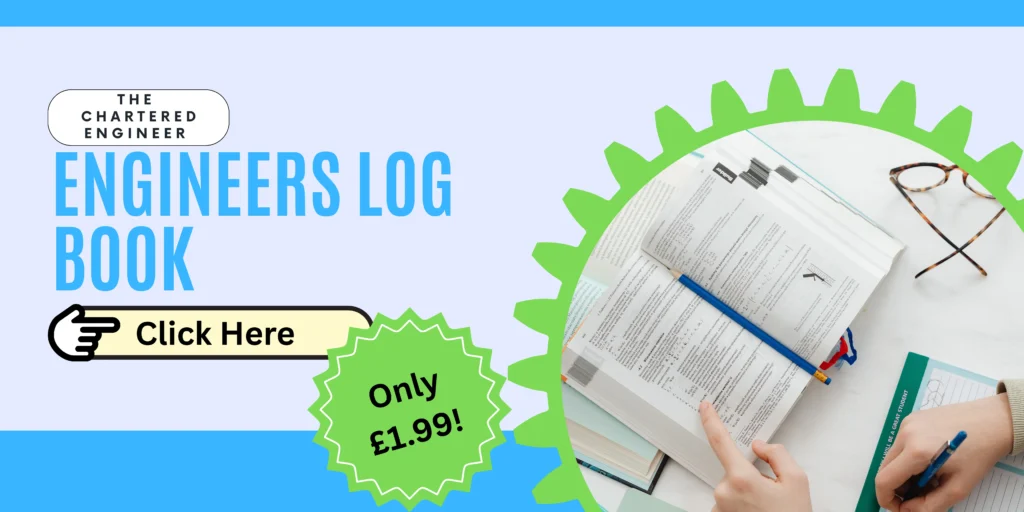Daily Development: How I sharpen the saw
It’s not just about the body.

Before we get to my daily development routine, I want to jump back into my past (no, not a therapy session today).I remember sitting on the floor outside the exam hall at University, frantically reading and writing notes from the source book (Engineering Mathematics 4th Edition) in the last 10 mins before we started. Trying to refresh my mind of the topic – I passed to my great relief but that’s not the most effective method.
Why I sharpen the saw
We can’t rely on learning on the job or picking up an idea just from one instance. To develop mental capabilities to retain that knowledge (like last month) we need to strengthen the connections in our brains to improve memory recall, here’s my daily development routine.
- Spaced repetition (interval learning) – Repeating mindlessly isn’t as effect as letting yourself partly forget something over time and then try to recall it, studies found on PUBMED (link later) discuss several trials comparing bulk learning against interval learning.
- Interleaving – Studying more than one thing at a time and testing yourself on them.
- Active retrieval – Self testing yourself regularly as you learn new topics
These ideas are discussed in depth in ‘Make it stick’ – Peter Brown
To help me achieve the goal of steady progress I’ve enlisted some apps on my mobile to help.
- Anki – Flashcards
- Brilliant – Science /Maths / Engineering and Logic practise
- Duolingo – Language



So lets add in the material that lead me to the decision to learning in this way.
- Kurzgesart video (https://www.youtube.com/watch?v=75d_29QWELk&t=191s) We covered this one before.
- ‘Spark’ – John Ratey
- ‘Make it stick’ – Peter Brown
- ‘Mastery’ – George Leonard
- ‘Thinking, Fast and Slow’ – Daniel Kahneman
- Ted Talks (https://www.youtube.com/watch?v=9vJRopau0g0)
- Veritasium (https://www.youtube.com/watch?v=UBVV8pch1dM&t=1s)
- Ali Abdaal (https://www.youtube.com/watch?v=fBXnxlLR0PY)
- Thomas Frank (https://www.youtube.com/watch?v=eVajQPuRmk8)
- PUBMED (https://pubmed.ncbi.nlm.nih.gov/?term=interval+learning)
I won’t as always go into the science and details (the creators above have done far more than you need to know) and there are excellent examples on the web beyond these, I want to talk about my experiences after deciding to learn more.
I can safely say that it is known that after reading or listening to information we start to forget it straight away (others are better at retaining and this leads to people build mind palaces – like Sherlock). Think of the mind like a capacitor and at time = 1 sec you’re at 100% over the next few hours that will drop to say 60-70% and after 24 hrs it’s low.
Why? Well again the sources cover that well, but the studies I’ve read on PUBMED do highlight that interval training has far more affect than bulk learning (however, they point out after stopping both methods score the same after a period of time and so the idea is to keep up the act of learning like a exercise). We need to practise / test ourselves to retrieve the information we learnt, we need to stress those connections regularly otherwise are will fade (so now I can quote ‘Use it or lose it’).
If we want to learn anything new we need to transfer it from our short term memory (slow mind) to our long term memory (fast mind). However as most know we need to repeat that process until it cements itself, unfortunately you can’t go cold turkey at the point that you can retrieve the information, it’s a periodic process where the time between gaps lengthens.
I thought about the benefits and drawbacks to this after trying the above methods for 2-3 years, so far I came up with:
- Increase in creative thoughts
- Better articulation of ideas
- Better understanding in various communications
- Several headaches
- Increased depth of knowledge in topics and a wider understanding of their connections to others
- Better relationships (professional)
- Yes better recall
- Depending on your schedule it can take an hour per day
- Can become a chore so you need to mix it up
I’m sure there are many pro’s and con’s but from my point of view I’m exploring and finding the gaps in my knowledge or simply filling myself with facts I find interesting or important, this reinforces what I’ve learnt.
Thomas Frank has a great video of the method I use to practice, which is to do so with intent – meaning to cover what you know but then to push yourself for the last 5-10 mins.
Getting Started
After reading the ‘The 7 habits of highly effective people’ a few years ago, I wanted to implement one idea to start with to drive towards a goal of self-development. I chose to sharpen the saw – why? Because not only did I want to be a better engineer but also a better individual and professional (plus it makes a great story).
Going online and watching several videos from Ali and Thomas (there are many others that may resonate with you) for encouragement and tips, I choose how I wanted to start.
It needed to be a healthy habit, so I use Habitica (https://habitica.com) to track and remind me, it’s great for role players / gamers and nerds. After 10 mins setting up my habits online and downloading the app on my mobile, I was ready to go.
Really I wanted to cover 3 areas – Words I didn’t know / Improving my science and engineering principle knowledge and Developing a language. From that list I decided on using Anki (words) Brilliant (knowledge) and Duolingo (language).
You can find out why it’s important to exercise the brain from one of my previous posts here or by reading ‘SPARK’ and ‘Make it stick’ and ‘Thinking, fast and slow’. That’s the science which appears to be well researched (go to PUBMED for more).
I was all ready to follow the guidance from Ali and Thomas to try to see if after 2 years I would notice a difference in myself (note I do need to ask my peers and colleagues if they see anything different as well).
Let’s go over my experiences and I’ll share my final thoughts at the end.
My daily development progress
I’ve been using Anki and Brilliant for 2 years and Duolingo for nearly a year. With Anki I enjoy making my own deck of flashcards (however there are many you can download on the app itself), like the one I have to increase my vocabulary of words and another in mechanical principles. For the words it improves my understanding in meetings without having to stop the speakers to ask what that word meant (when I do I add it to the decks), as an engineer being able to project my ideas succinctly is important to gain the buy in for the improvements and projects I want to run.
The deck for mechanical principles is another way that I test myself daily with the basics I need to use but also to help remind me of the basic ideas that I can then teach and guide young engineers with (here I’m talking about the curse of knowledge when seasoned professionals forget the basics that got them into the more advanced concepts of their fields).
In discussions I’ve had with colleagues I was reminded once that teachers are so effective in what they teach because they cover both the basics / immediate and advanced concepts of topics on a regular basis, so I make it a goal to repeat all of this for my field so I can take individuals though the levels of Lean and other areas.
Now for Brilliant, and I’m sure by now you’ve all heard about Brilliant.org, it gets plugged by almost every YouTuber available, so I’ll stick with my experiences using it. Truth be told it’s actual well thought out and an excellent site to use by anyone with plenty of Maths / Science and Engineering and more Maths to get stuck into.
To date, I’ve completed a few of the free courses out of the 60+ they claim to have (I haven’t counted) and around 1200 daily challenges which I’m proud to say I have about a 60% of them correct. What I like about Brilliant, is that it doesn’t just challenge your knowledge of facts but your reasoning and logic skills as well (this is core for maths but they go into Logic by itself). I targeted the logic courses when I first started as I considered myself to be weak on the topic (no SWAT analysis was required), and over the 2 years they have become one of my favourite daily tests. After which I got stuck into basic mechanical and science principles and of course astrophysics which I found very enjoyable (might take a Coursera course and earn a certificate in that one).
Lastly Duolingo, this one was a wildcard for me as I haven’t done much language learning since secondary school and all I knew was ‘Bonjour’ – that’s not going to get me far!
This one was more of a personal choice and not driven from what I have learnt from the website (funny enough the site I link at the base of every post https://freelearninglist.org/ does recommend it and so do I. For me as I wanted to learn another language (I heard there’s some benefit to that), but I highlight this app because the latest generation like Duolingo and Mimo (Python learning) are just as interactive as Brilliant is, build with progression with frequent tests and fun bonus rounds and all with enough content to ensure the hardcore will not be able to burn through it within a few hours.
With these types of apps they do add in leagues with leatherboards and to be fair I was sucked in to the competitiveness of ranking up through the 10 leagues they have. I got to Diamond and ticked that one off.
What I like / dislike / found useful / could improve on these apps.
Apart from the free versions which includes 60-90% of their contents? It’s simple enough for me to explain, there are four areas that I like – they offer free content to help people learn without committing / they have communities (forums) of learners that discuss topics to read up on / they guide the users in pre made courses and they allow you to explore and the last area is that they are well written and easy to digest.
I’m reminded of the Ted talk given by Mark Rober (linked above) where he discusses the ‘Super Mario effect’ – basically by having unlimited lives you are challenging yourself without to much penalties to complete the course, Mark did this by using two groups challenged to play a coding game where one group lost points if they failed and the other didn’t, the last group by seeing failure in a different light instead of being negative they saw the failure as the route not to take.
Duolingo does have restriction (mainly time based for the free version so they can offer the unlimited subscription model), the other two by comparison don’t. Duolingo does allow you to practise what you have passed to your hearts content so like the other two practise without repercussion is there and encourages you to continue.
Duolingo has recently gone through a design update which I don’t really like, it’s more linear with a path set out, the last revision was a stepping stone format path where you could choose what to do and how much of that you wanted to do before progressing with the minimum requirement being completing level 1 in each step.
Apart from that Duolingo has practise sessions / timed sessions, they go through the alphabet for each language (they cover many languages) and each lesson has a voice teacher and sub text which can be used to help the users, only on the tests at the end you have the option to go for legendary status where no help is given.
Anki is a very simple to use and simple in its design, but that’s its power simple yet effective, here the more flashcards you add the more you are testing yourself, but you have to do all the work as the app just times the cards as to when they appear again and tracks you stats.
To make a deck you can add in the reminder and answer along with voice and photo prompts to help you. I’ve tried a number of the pre made apps from other users which in my opinion they can vary in quality and usefulness quite a bit, so I would recommend building your own decks to get the most out of Anki. I’ve also seen that while Anki is free for Android and on the web browser, but it seems to cost ~$24.99 on IOS.
Brilliant, the layout of the site and the app mimic each other well and navigating around is simple, they have tabs to jump between the courses and the daily challenges as well as your overall stats if like me you have to check if you’re getting better. The courses are a mixture of knowledge and interactable experiments to demonstrate the idea, Brilliant allows you to make you own conclusions before explaining either way if your right or wrong you get to know why each is what it is based on experiments. With the daily challenges they give you a remind of the core principles before setting the test on you, some are interactive and some are thought based (some are quite a challenge).
Overall, they have done a great job and the free version allows for anyone to get a taste and even develop without having to pay for the subscription, definitely a win: win.
Conclusion my Daily Development
Remember that scene from Star Trek 4? When Spock is wearing a bathrobe and is standing in front of three glass panels, each asking him various questions? Well apart from Saavik being a whole other person (that confused 10 year old me) his training is something I now do on a daily basis.
Why do we exercise? As I see runners everyday training and stressing their body muscles, so why is testing ourselves any different to that? – it’s not and making sure we exercise both does a lot for our development (just go read the research).
Getting older has its benefits, being wiser, laughing at the mistakes the young make knowing we were there once and being able to look back at a life well lived. But needing daily mental exercise helps to stay sharp (as the title suggests).
The one trouble I found with this method is adding to the learning, once I’m happy with the level of recall. What topic links to what I have been practising that will aid me? It can take some time to decide. It’s important to note that this method is continuously never ending, as once you stop you start losing what you’ve gained (however, I’m sure that something does remain as you never really forget how to cycle).
After working on myself using these apps (yes the mobile is the future) I’ve now formed habits to help reinforce and boost me, trying to gain that so called 1%. It’s not as critical as I have found, since gaining 0.25% or 10% each day just means in the long term the benefits average out.
The point is to practise deliberately, not to wait for on the job training or opportunities to present themselves. I’ve listed resources here that are free to get you started. Again I’m no expert and I’m on the same development journey as you all, this is what I have tried and my story, but reading and researching has lead me to creating this website to share all this with you.
I believe that it’s a positive step, I can honestly recommend these apps to anyone.
Computer, I feel fine.
My thoughts on trying interval learning
- I’m studying more and retaining a good amount of information, but I have to load what I want to remember into Anki or other systems to train myself.
- It takes a fair amount of time and I have found that even after a space of a few months some ideas / words I have forgotten, so you start the spacing again.
- I find it easier to tie in the things I want to remember together so they relate, that means if I’m studying astrophysics (which I find fascinating) I tie that with the books I read or listen to, but I also weave that with two other topics – My interests / professional & other which helps the topics not to go stale.
- Developing this as a habit as also had it’s challenges – I’ve used habitica (https://habitica.com/static/home) to help remind me which worked well to the point that I nature stopped using habitica and remembered my habits, if you decide to take on interval learning I suggest getting or using an app similar to this.
- A lot of books / videos and sites quote the mind as a muscle which I’m sure it is, do we really lose so much information in a short period of time? My guess would be that different people have different rates, but I have found the more you do the less is lost.
- I can honestly say I’ve seen a change in myself, my ideas and thoughts are more developed. I can be quizzed on them and I have more confident to defend those or offer alternative ideas, I now offer alternatives to others based on my studying methods.



What are your thoughts? Have I covered everything or is there more you know and would like to share?
I’m always learning and improving this site and my blogs, so please feel free to get in touch with me via LinkedIn or this site to discuss any topics I have covered.
If you’re having trouble finding ways to progress check out these sites filled with free learning tools:


Discover more from The Chartered Engineer
Subscribe to get the latest posts sent to your email.